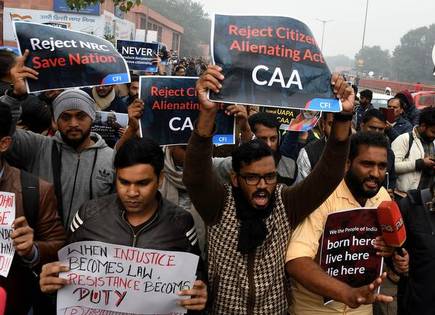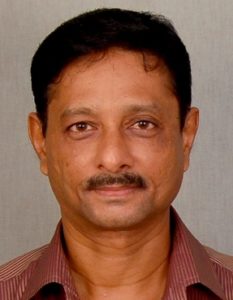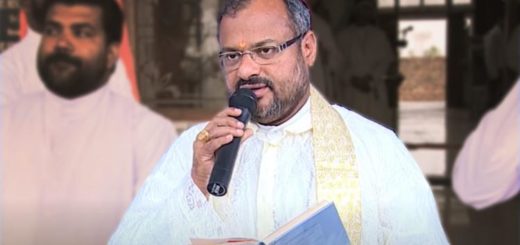Fallout of NRC and CAA – Will India become a Hindu Rashtra?

This refers to 19 December 2019 mattersindia.com report captioned DAYAL, CEDRIC AMONG HUNDREDS DETAINED FOR PROTESTING CAA. The report can be accessed at http://mattersindia.com/2019/12/dayal-cedric-among-hundreds-detained-for-protesting-caa/
The report said that Dr John Dayal and Fr Cedric Prakash were arrested along with others, in Delhi and Ahmedabad respectively, while doing peaceful demonstration, against the Citizens’ Amendment Act (CAA). The Act was passed recently in the Parliament and has been challenged in the Supreme Court. They including historian and author Ramachandra Guha, who was detained Bangalore, among many others, had every democratic right to hold peaceful demonstration on matters which according to their conviction gravely impact citizens of our country.
In the last paragraph of the report it was written that CAA excludes Muslims. Thus it was contended that the Act discriminates based on religion and violates the basic tenets of the Indian Constitution. The protestors also see CAA as first step towards converting India into a Hindu theocratic nation.

Does the Indian Church have any role to play in this critical time when the nation is torn apart with fear and confusion? The answer is certainly yes. Each Diocese should conduct open house sessions by bringing in some legal experts to explain to the faithful the nitty-gritty of CAA and NRC (National Register of Citizens). Similar sessions should also be held on the Constitution of India to make us aware of our rights and duties. The training / workshop should be conducted in modular form so that it is easy for the Aam Aadmi (laity whom the Church calls `sheep'!) to comprehend complex issues regarding one's rights and duties. I feel most of us are agitating without reading the Act vis-a-vis the Indian Constitution, and are mainly going by the herd mentality or for photo ops. Therefore an interactive session with the faithful is a must. These sessions should be conducted by practising lawyers and not by the so-called leaders for all seasons picked up by the Church hierarchy more for their obeisance than for their expertise.
Regarding the apprehension that through CAA and some other bills, India will be converted into a Hindu theocratic nation, it is not founded on logic in view of the Supreme Court of India pronouncements, particularly in Keshavananda Bharti v. State of Kerala (1973) case. Here the Supreme Court clearly stated that the Parliament cannot change certain basic tenets of the Indian Constitution, even by absolute majority. SECULARISM is one such basic tenet. Going by this logic, even if the current NDA government by overwhelming majority in the Parliament were to declare India a Hindu Rashtra, it will be struck down by the Supreme Court of India. Let us delve in further (source: Wikipedia).
Supreme Court, through the decisive judgement of Justice H. R. Khanna in Keshavananda Bharti v. State of Kerala (1973) case, declared that the basic structure or features of the constitution is resting on the basic foundation of the constitution. The basic foundation of the constitution is the dignity and the freedom of its citizens which is of supreme importance and cannot be destroyed by any legislation of the parliament. The basic features of the Constitution have not been explicitly defined by the Judiciary. At least, 20 features have been described as "basic" or "essential" by the Courts in numerous cases, and have been incorporated in the basic structure. Only Judiciary decides the basic features of the Constitution and not the parliament. In Indira Nehru Gandhi v. Raj Naraian and also in the Minerva Mills case, it was observed that the claim of any particular feature of the Constitution to be a "basic" feature would be determined by the Court in each case that comes before it. Some of the features of the Constitution termed as "basic" are listed below:
(1) Supremacy of the Constitution (2) Rule of law (3) The principle of Separation of Powers (4) The objectives specified in the Preamble to the Constitution (5) Judicial Review (6) Articles 32 and 226 (7) Federalism including financial liberty of states under Articles 282 and 293 (8) Secularism (9) The Sovereign, Democratic, Republican structure (10) Freedom and dignity of the individual (11) Unity and integrity of the Nation (11) The principle of equality, not every feature of equality, but the quintessence of equal justice (12) The "essence" of other Fundamental Rights in Part III (13) The concept of social and economic justice — to build a Welfare State: Part IV in toto (14) The balance between Fundamental Rights and Directive Principles (15) The Parliamentary system of government (16) The principle of free and fair elections (17) Limitations upon the amending power conferred by Article 368 (18) Independence of the Judiciary (19) Effective access to justice (20) Powers of the Supreme Court under Articles 32, 136, 141, 142 (21) Legislation seeking to nullify the awards made in exercise of the judicial power of the State by Arbitration Tribunals constituted under an Act[8] (22) Welfare state.
In case of CAA, the opposition's argument is that it puts a barrier on Muslim identity by declaring India a welcome refuge to all other religious communities. It seeks to legally establish Muslims as second-class citizens of India by providing preferential treatment to other groups. This violates the Indian Constitution’s Article 14, the fundamental right to equality to all persons. The basic structure of the Constitution cannot be reshaped by any parliament. And yet the Government maintains that it does not discriminate or violate the right to equality. So let the Supreme Court decide.
In this context, it would be interesting to refer to Aakar Patel’s article 1st October 2018 “WHY BJP CAN’T TURN INDIA INTO HINDU RASHTRA” in Rediff.com. Aakar who is winner of the 2018 Prem Bhatia Award for Political Reporting and Executive Director, Amnesty International India, wrote:
- The theory is that a second consecutive, and possibly sweeping, victory for the Bharatiya Janata Party (in 2019 election) will embolden it to add to the Constitution certain elements that will make it a Hindu Rashtra.
- There are two elements a Hindu Rashtra here, just as there are in any religious or theocratic State. One is that aspects of the religion's values and its culture are introduced into the law. In some Muslim States, for example, there is a prohibition on alcohol and people are forced to shut their restaurants during the day in the month of Ramzan. Some of these things we already have in India. Prohibition of alcohol and cow slaughter already exists in our laws in some form and in many states.
- The second is the dividing of people by religion or gender and telling them what they can and cannot do. This is the deeper aspect of a theocratic State, and this is the one that people fear.
- The problem of a Hindu Rashtra is that it has no text which can be adapted to the modern world. The most prominent element of the Hindu way of organising society and the State is through caste. This is not acceptable to most Hindus.
- The dominant political communities across the country from north to south is the Shudra peasantry comprising castes like Patidars, Vokkaliga, Jats, Yadavs, Reddys and so on.
- Most chief ministers and ministers come from these castes. These communities are not going to give up their power to Brahmins voluntarily because of some change in law. Hindu Rashtra does not offer them anything they do not already have.
- Similarly, Dalits and Adivasis, who are a quarter of our population, do not get anything under a Hindu Rashtra and there is no reason for them to want it.
- A system that privileges the Hindu religion and its adherents must necessarily look to caste, and that is a non-starter.
- So what changes can be introduced to the Constitution to bring about a Hindu Rashtra?
- We can discriminate against non-Hindus and deny them their rights. Some of this we have already done. In Gujarat and Bihar, Christians cannot drink their sacramental wine and in most parts of India, Muslims cannot sacrifice a cow. Other rights we have not taken away officially, but they are non-existent for all practical purposes.
- Muslims are not banned from becoming prime minister, but it is unimaginable in this time to see that happening anytime soon. Indeed, Muslim representation in politics is at its lowest since 1947 and it is not even an issue in India.
- We could go ahead and officially deny Christians and Muslims some political rights under Hindu Rashtra.
- However, because a Hindu Rashtra also erodes the power and the rights of the majority of Hindus, we can be assured that this is not something that the BJP, or any other force can do.
The author has often been to Pakistan and has studied it for many years. He said that life is not very different for the individual in a 'religious' State over an individual in a 'secular' State on the Subcontinent.
Notwithstanding the interesting and in-depth analysis of what Aakar Patel has written, what will put a spanner on the powers-that-be to declare India a Hindu Rashtra is the Supreme Court stricture on `Basic Tenets' given above. The Indian electorate is not naive and cannot be taken for a royal ride all the time.

















